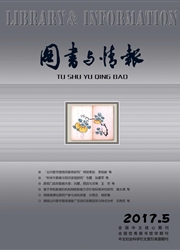

 中文摘要:
中文摘要:
当前,大城市病已成为城市科学、可持续发展必须面对和解决的问题。为此,政府出台各种政策予以应对,但实施效果还有待进一步观察和评估。适用于大城市病政策的定量评估模型将有利于深入解读政策效果,为政策后续调整提供参考建议。基于已有相关研究成果,综合目标达成模型和用户导向模型的特点,同时借鉴情报学网络舆情分析思路,本文提出一种定量与定性、客观与主观相结合的综合评估模型,并以"北京市摇号购车"政策为例进行实证分析。结果显示该政策客观有效但民众满意度低,并就这种矛盾背后的原因给出分析。模型的合理性和可行性得到验证,将为相关部门进一步优化和完善政策提供新的思路。
 英文摘要:
英文摘要:
Urban diseases have become serious issues in the way of city's scientific and sustainable development.The Chinese government has introduced a series of policies to deal with these crises and their effects need further observation and evaluation.A quantitative evaluation model for policies that aims to solve urban diseases will provide in-depth interpretation of policy effect and reference for policy adjustment.Based on the existing research results,this paper presents a synthetic evaluation model,which combines the characteristics of goal-attainment model and client-oriented model,drawing on the idea of network public opinion analysis in information science and uses both quantitative and qualitative methods to assess the objective and subjective aspects of policy effect.Finally,Beijing license-plate lottery policy is taken as an empirical case study.The results show that the policy is effective from the objective data but receives low public satisfaction,an analysis of this conflict is given behind.The rationality and feasibility of the model is verified.This will further optimize and improve policies for related departments.
 同期刊论文项目
同期刊论文项目
 同项目期刊论文
同项目期刊论文
 期刊信息
期刊信息
